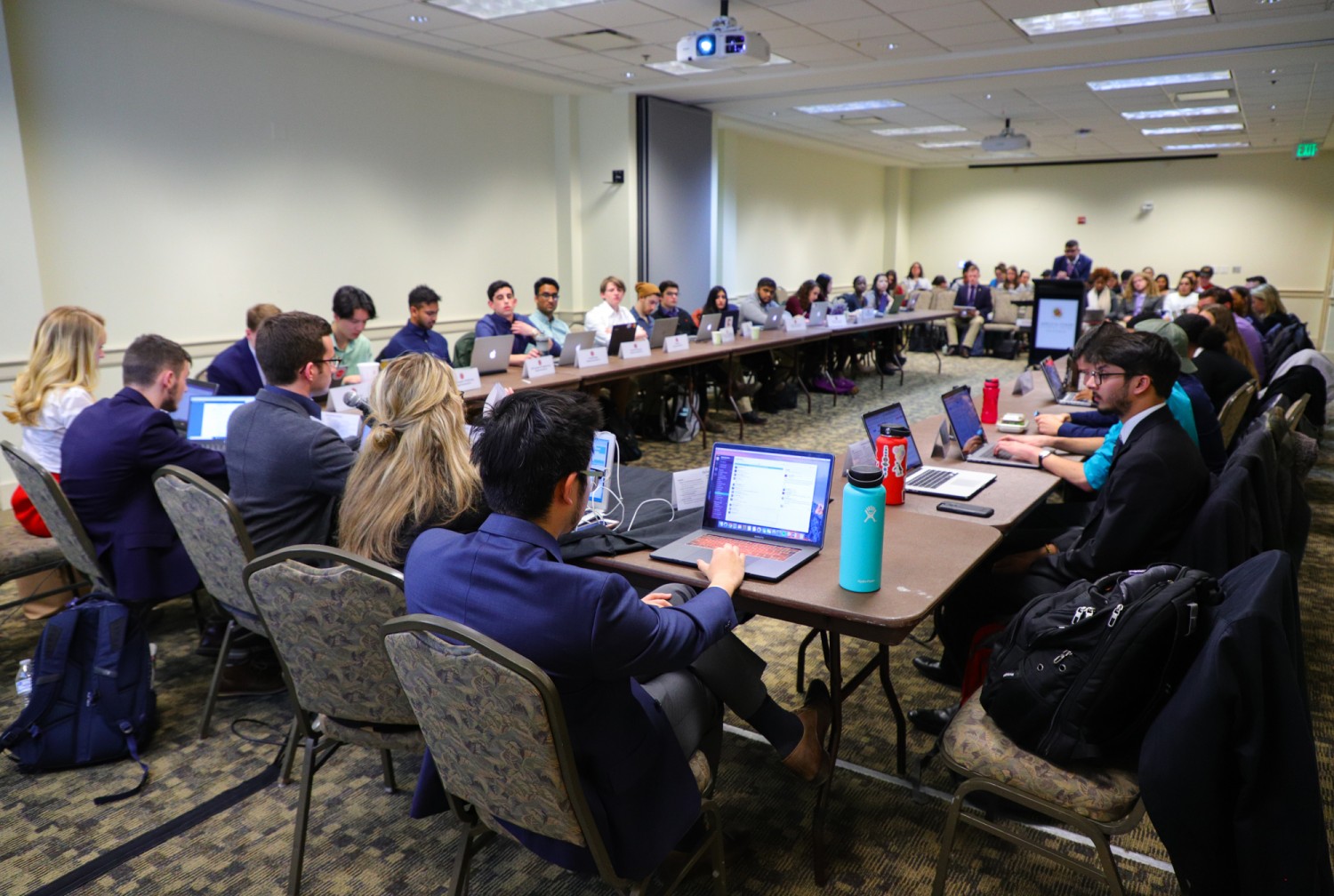Views expressed in opinion columns are the author’s own.
As SGA elections approach, Envision Maryland is a clear favorite. It’s running unopposed for most seats, is composed of many incumbents and has the support of many student groups. While this election presents the University of Maryland with a united front, it is also indicative of a great flaw in our student body: apathy.
On a campus with more than 27,000 undergraduate students, barely 40 are running for Student Government Association positions, and there are still four vacant seats. This is not a recent phenomenon either. This is the third year in a row with only one party on the final ballot with more than three candidates. In the past two years, voter turnout has been less than 10 percent, and this year will probably be no exception.
Pervasive lack of involvement is a stain on this university’s reputation as a campus of leaders. When there is so little participation in the university’s most prominent legislative body, it sends the message that this is not a place where people care about their community.
[Read more: SGA candidates began campaigning on Monday. Here’s a glance at their platforms.]
Such a tendency also undermines our democratic system. If there is no voting, then there is no accountability, and the SGA is not as responsive to the students as it should be. This serious issue must be seriously discussed by the next SGA. How will it make running for seats more accessible? How will it mobilize more people to be active in campus issues? How will it make starting and joining a party easier?
There are no simple answers, but if we let apathy plague our community, this university risks creating a student body that is uninvolved and uninterested in its future. This university relies on alumni donations, involvement and accessibility to make it a better place for current students. Apathetic students graduating from this university are unlikely to be involved in its future.
However, we can still act. Envision Maryland candidates are running mostly unopposed and are already clear favorites. Rather than concentrating on campaigning, Envision should focus on student engagement. Rather than just canvassing to ask people to vote for them, they should be actively collecting feedback from students. Rather than just posting on social media about the party, they can release Google forms and surveys to collect thoughts from the campus community. In this way, Envision can engage with the campus community and make the SGA feel relevant to students. This would hopefully translate to higher engagement, voter turnout and more candidates in the long run.
Envision Maryland has the opportunity to shape the future of our community and change campus culture. This election needs to be different than previous ones if Envision Maryland or Recognize UMD, the other party, want to set this university up for success.
Moshe Klein is a senior government and politics major. He can be reached at mosheylklein@gmail.com.



